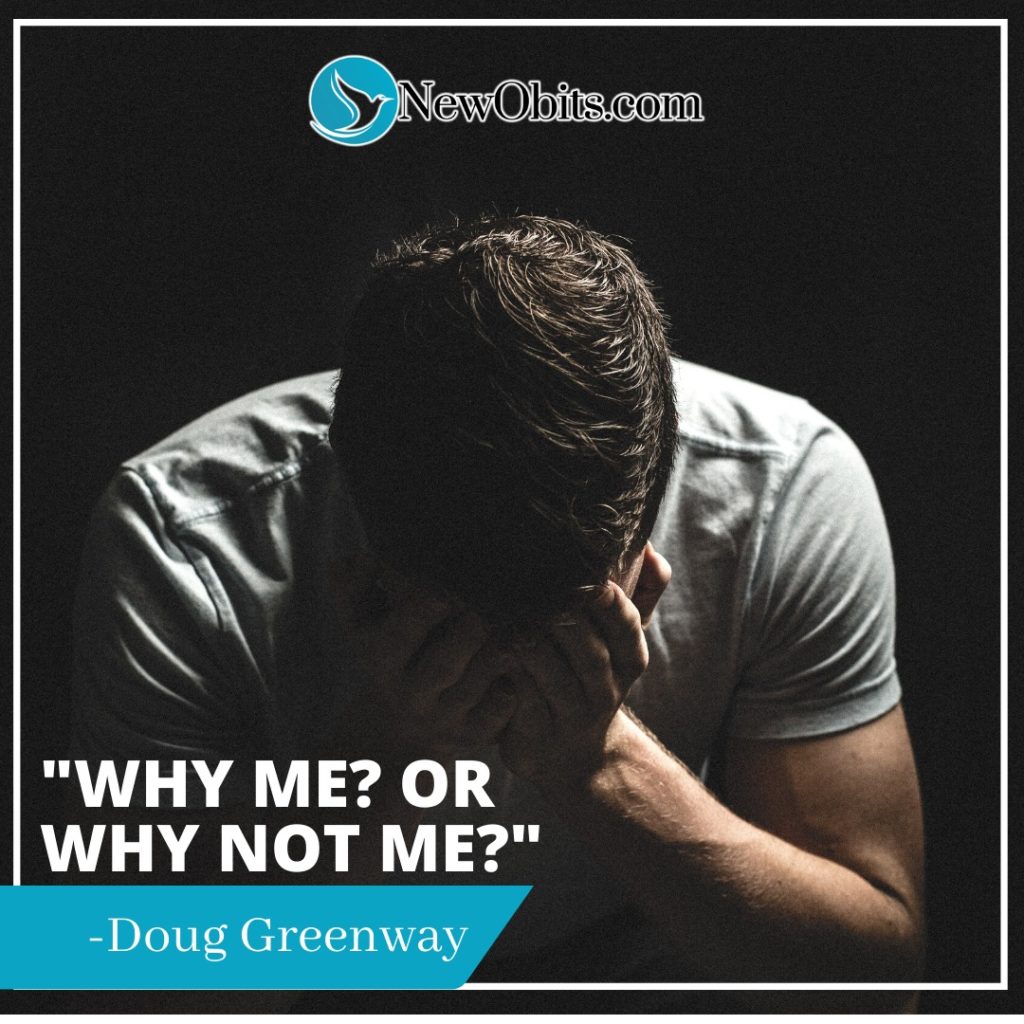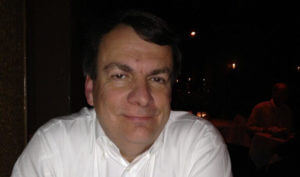
I was 16 years old in 1970 when I applied for my driver’s license. Horror of all horrors, I failed the vision test. I was handed a form and told to go see an optometrist for his approval to take my road test to drive. I did have the vision exam and what the doctor said was “With those eyes, you’ll never drive.” What he MEANT was, “With those eyes, you’ll drive — but you’ll need corrective lenses!” But — that’s not what he said! My world came crashing in, the tears flowed, and for the first time in my life I asked the “Why Me?” question in an earnest prayer. The “why NOT me” outlook I later adopted saved my sanity.
I’ve asked “Why NOT Me?” countless times in the last almost fifty years. How about you?
William Faulkner said: “Between grief and nothing I will take grief.” I think I am old enough now to understand what he meant. Sometimes you just accept the reality of what is and commit yourself to begin to adjust to a new normal.
The character of Job has been a great inspiration to me. Job 1:1 (NKJV) = There was a man in the land of Uz, whose name was Job; and that man was blameless and upright, and one who feared God and shunned evil.
God put his stamp of approval on Job’s life and said that there was none like him in all the earth. (Vs. 8) . Job was a person of great FAITH. He had seven sons and three daughters. He was blessed with a great FAMILY. He was a man of great FORTUNE — the greatest man of the East. (Vs. 3)
However, Job lost most of his family and fortune and his faith was assaulted all in one day. But — Job 1:22 (NKJV) = In all this Job did not sin nor charge God with wrong.
Job seemed to survive and eventually thrive because he kept the “Why NOT Me?” outlook!
The famous quote from Alfred Lord Tennyson, “’tis better to have loved and lost than never to have loved at all” is particularly relevant.
Sometimes it helps to remind ourselves that the reason we feel grief at a loved one’s death is simply because we had the capacity and the opportunity to love them. And we chose to love. And we’ll always love them, even though we are denied the comfort of their presence for a while.
Our grief is a testimony to the fact that we can bond and care for another human being in a special way.
Our grief reminds us that we have the ability to get emotionally close, feel affectionate, and we decided to dedicate a part of our limited resources, emotion and energy to another fellow human being.
The decision to stake our claim in another person’s life becomes the very source of the pain we feel in our losses. But the final page of the story has not been written. We shall meet again.

Doug Greenway
These blog articles are written by the retired minister and former educator and counselor, Doug Greenway. He'd love to hear from you with your comments, questions, or suggestions for future topics. You may reach Doug at doug_greenway@yahoo.com.
